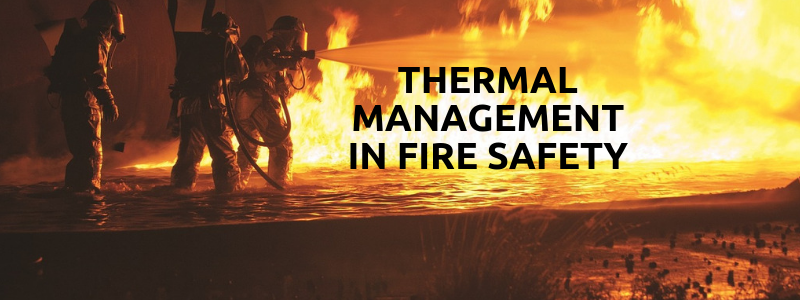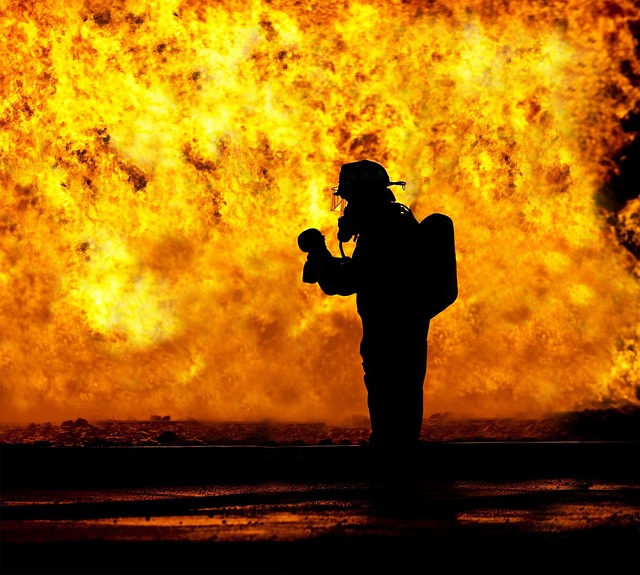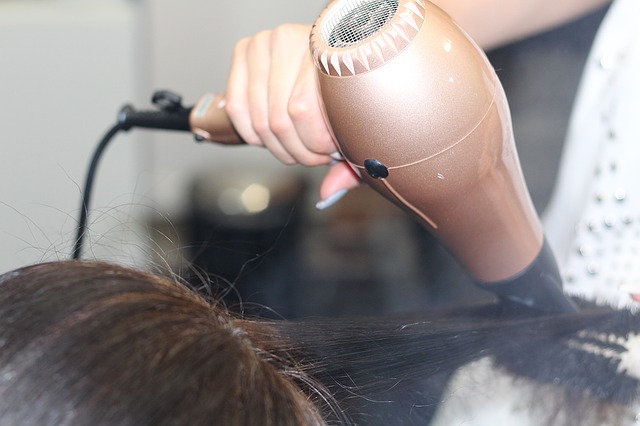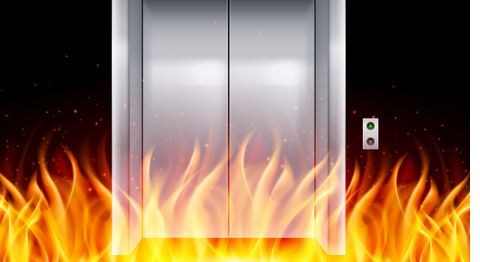
Fire safety, thermal management and high temperature insulation are all connected, and mica, as both solution and product, has a key role to play across industries where these things are a major concern.
Fire protection is a key requirement for the automotive and aerospace industries, but also is an essential facet in various continuous processes, involved in the petrochemical and other industries.
Fire safety touches the lives of pretty much everyone; whether it’s when they are using everyday consumer appliances, or when they are at work, where fire protection is part of the infrastructure of their surroundings.
What does mica contribute to fire safety, and why is it such an important material?
Mica’s Fire Safety Qualities

Mica’s natural mineral properties mean that it is an excellent insulator while being extremely durable and adaptable. Whether in pure form, or combined with other materials, including microporous insulation, mica offers a range of solutions across different industries when it comes to fire protection and ensuring fire safety.
Microporous technology is effective in blocking three types of heat transfer: conduction, convection and radiation.
Conduction involves heat flux through solid materials; convection is where heat flows through gases and liquids; and radiation is where heat travels through electromagnetic waves.
Addressing these types of heat transfer means high temperature solutions can offer essential fire protection for different products and functions, including electrical, industrial and transport.
Making Consumer Appliances Safe
Faulty consumer appliances can be the cause of household fires, and is especially prone to causing injury and damage, because they are heat-generating.

Items such as hairdryers function through heating up and cooling down quickly, but to do this safely they must have the right degree of high temperature insulation.
The nichrome element in hairdryers is wound around an insulating board, which must be thermally resistant and provide a high level of protection from the risk of fire.
Mica is an ideal solution, as, in rigid form, it can be cut into custom shapes. Its natural heat resistance, combined with strong dielectric properties, make mica the perfect fire safety material for consumer appliances.
Heat Shields in Transportation
Fire safety is a critical issue in various forms of transportation, including automotive, aerospace and specialist, military transport.
Typically, internal combustion engines will give off large amounts of heat, which can damage components and, in certain conditions, lead to outbreaks of fire.
Similarly, the intense temperatures from jet engines in reverse thrust mode mean that fire is an inherent risk in modern air-flight.
Mica is the basis for heat shields in both aeroplanes and vehicles, helping to cool engine vents and provide thermal management for exhausts.
Even as electric vehicles become more prominent, mica will continue to play an essential fire safety and protective role, helping to insulate sophisticated electrical components.
Fire Safety in Industry
In the petrochemical processing industry, hazardous environments come with the job, and much of the industry’s continuous processes involve working in dangerously high temperatures with extremely combustible materials.
Thermal control combined with fire safety considerations are integral to safe, productive working.
Microporous insulation of pipes and tubes helps extend their lifespan, while ensuring thermal management. These specialist linings are extremely hardwearing and heat resistant, but are also lightweight and flexible.
Also, across various sectors, effective insulation is required for electric cables, to ensure their resistance to fire and to mechanical shock. In many industries, electrical equipment has a vital, strategic importance, and where fire does occur, it is important that it can continue to function as long and as effectively as possible.

This sort of cabling carries power supplies in hospitals, airports, power stations and other key locations.
Mica insulating tape offers the protection these cables require for fire safety.
Fire Safety Solutions for Buildings
Reliable, reassuring fire safety for buildings involves passive fire protection, which is designed to contain and prevent the spread of fire.
This works as another protective measure alongside active fire prevention elements such as sprinklers, extinguishers and other suppressants, and fire alarms.
Good passive fire protection means having fire resistant floors and doors. Fire doors help to compartmentalise any fire outbreaks, creating sealed units within a building, which then increase people’ chances of making a safe evacuation.
Microporous materials provide fire resistant linings to fire doors, in the form of lightweight and thin insulation boards. The same applies to lift doors, which should also be fire resistant to prevent the spread of a fire through a building’s lift shafts.
A Safe, Mineral Alternative
Asbestos was once seen as the wonder miracle for fire safety applications, until it was exposed as a serious health risk.
Like asbestos, mica is a silicate material, formed in rock, but, unlike asbestos, mica is safe. For anyone looking for a safe alternative to asbestos, which will combine strength with heat resistance performance, mica is the answer.
It is more than an asbestos substitute, however. Used with other materials, or in pure form, mica is extremely versatile, and its combined qualities of electrical resistance and high temperature insulation make it the right choice across a diverse spread of industries and sectors.
Have You Got the Right Fire Safety?
You might be working with hazardous materials, manufacturing electrical goods, or working in an office environment. Fire safety will need to be a basic part of your working life regardless.
At Elmelin, we work with different businesses and organisations drawn from a broad spectrum of disciplines and sectors. What provide is peace of mind through expert fire safety, thermal management and high temperature insulation solutions.
For more information, please call us on +44 20 8520 2248, or email sales@elmelin.com. You can also complete our online enquiry form and we’ll get back to you as soon as we can.
